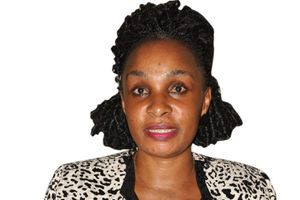
Land activists and other leaders attend a regional multi-stakeholder budget advocacy dialogue in Lira City on February 27. PHOTO | FILE
Ms Betty Aol Ocan, the Gulu City Woman Member of Parliament (MP), suffered the devastating loss of her husband, Michael Ocan, in 2017. And just days into her loss, she was summoned for an urgent meeting.
“Clansmen from my husband’s family and some of his brothers sat me down and questioned me on the specifics of the properties of my late husband. They asked me, among other things, ‘Where has Michael bought land?’
“On the sidelines, I even heard some deliberations on who among them would take possessions of the lorry [he owned] and some [of his] vehicles,” Ms Aol says.
“I told them off. I refused anyone to joke around with me. ‘I am a teacher [by profession] and you are here asking me stupid questions,” Ms Aol, who said she was irritated, told the Monitor during an interview on Saturday.
Without delving into particulars about her late husband’s properties, the former Leader of Opposition in Parliament (LoP), defiantly told off the inquisitive kinsmen that her seven children and herself were ‘the only properties’ Ocan had.
In the end, the men retreated and let her be.
Other widows speak out
But Ms Aol is not alone in her distress, many more widows are caught up in the same fix.
After losing their partners, opportunists swing in to take advantage of them. And for some of these women, they are not as empowered as Aol.
For Ms Merab Ruth Nakalembe, her step-children pushed her out of her marital home and later fought hard to claim a plot of land her husband had lawfully [in documentation] left under her possession.
“They left me out to die in poverty,” a sobbing Nakalembe told a crowd commemorating the June 23 International Widows Day, in Masulita, Wakiso District.
Ms Nakalembe did not have any biological children with her husband, whom she had lived with for 39 years. The stepchildren who were up in arms against her were from a relationship her husband had with another woman.
For Ms Rukia Kikaziki, who was imprisoned over land wrangles with one of her sons, says: “I was imprisoned for eight years and when I came out of jail, I found my house levelled to the ground.”
Ms Kikaziki says the fight over the land ownership started after losing her husband in 1985, with her son keen on selling off chunks of the family land and keeping the proceeds to himself.
Are rural widows more vulnerable?
Could widows in rural areas be more vulnerable to property and land conflicts?
Mr Jolly Tony Mukooyo, the programme manager at Redeem International, a not-for-profit organisation, says widows are often targeted in land conflicts because of their vulnerable nature.
Her organisation operates in Uganda to secure the rights of widows and orphans from violent abuse and exploitation in land-related violations.
“They are poor, not exposed, uneducated, and do not have money to hire a lawyer. Such elements make it easy for people to take advantage of them,” says Mr Mukooyo.
He says the women are mostly from rural settings and their land is targeted because of the high value it carries.
Land as a basis of identity for Ugandans
The 2006 National Land Use Policy by the Ministry of Lands, Housing and Urban Development, says land is becoming scarce in many areas with the ever-changing human needs and a growing population resulting in competition for the different uses for the limited resource.
Land is currently used for agriculture, human settlement, construction, and nature conservation for the current estimated 45.9 million Ugandans population, going by the latest May 2024 Census.
Ms Angella Akoth, the women’s rights lead at ActionAid Uganda, says educated widows stand a better chance at standing up for themselves because, ‘knowledge is power.’
“Educated women know the avenues where to get support from as well as have some resources at their disposal which advantages them to fight for themselves,” Ms Akoth says.
Nonetheless, Ms Akoth concedes that sometimes educated women may come off worse in these fights because there is a lot of corruption, powerplay, and sometimes even death involved.
This death could be femicide or killings associated with gender, a practice Ms Akoth admits happens in regions that have active cultural institutions.
“The widow will be accused of engaging in witchcraft and poor behaviour before malicious people gang up against her. You may have heard of stories of huts in villages getting burnt mysteriously while the widow was asleep. Sometimes this is a femicide-related matter,” Ms Akoth says.
Though outlawed, Ms Akoth says widow-inheritance is still another challenge that widows often face from relatives of the man desiring to take them up as wives because they know what they stand to benefit.

Betty Aol Ocan, Gulu City MP, also suffered pressure from her family members regarding division of the husband’s properties after his death.
A 2020 Uganda Bureau of Statistics (Ubos) data covering the Environmental, Demographic, Socio-economic, Production, and Macroeconomic sectors, shows that the widowhood rates among persons of 60 years and above slightly increased from 36 percent in 2012/2013 to 38 percent in 2016/2017.
The proportion of women of 60 years and above, who were widowed in the two survey years stood at nearly 59 percent, 10 times above that of their male counterparts.
The Ubos statistical abstract did not provide data for widowhood rates among persons below the 60 years.
A 2014 report by the International Justice Mission (IJM), a global organisation protecting the poor from violence throughout developing countries, including Uganda, noted that young widows are the biggest victims of property grabbing, an opportunistic crime made possible by the absence of knowledge of the law and the justice system.
Ms Akoth says widowers or men who have lost wives, remarry faster because the society is highly patriarchal.
“When men, especially those in their younger or mid-life years lose wives, many times, they are encouraged to remarry quickly,” she says.
Two widowers, who spoke on condition of anonymity, told this publication they are currently under pressure to get remarried following the death of their wives, only years back.
They previously tried finding love again but later discarded the relationships as some women failed to embrace the children they had with their deceased wives.
A mini-survey conducted by the Monitor found that a number of organisations in the country aim at helping widows more than the widowers simply because women are more defenceless and opportunists find it easier to target them than men.
However, the organisations tend to step in to help the elderly widowers, who many times are abandoned and left to figure out the rest of their twilight years alone with some of their children and other family members wanting to take advantage of their fragile situation to steal their properties.
The 1995 Constitution, Article 31(2) provides for the protection of the rights of widows and widowers.
Ms Ritah Kemigisa, the advocacy and communications associate at the Stand for Land campaign, a call to action to close the glaring implementation gaps between the laws on land and the experiences by women pursuing their land rights, encourages cohabiting women to legalise their unions.
“…. because even if you have stayed with a man for more than 40 years and not wedded in any recognised traditional, church or Muslim function, in most cases, you might lose your right to claim anything, including land, especially if the man did not leave a will behind,” she said.
“Formalise your unions and write Wills. Documentation will save you a lot of things in the future,” Ms Kemigisa urges cohabiting men and women.
A Will is an expression of what one desires to happen to their properties after they die.
Where a deceased person leaves no Will and there is a surviving spouse, children and dependent relatives, and a customary heir and heiress, the 2022 amended Succession Law, which grounds the principles for the distribution of estates of deceased persons in the country, states that the surviving spouse shall get 20 percent, dependent relatives (4 percent), lineal descendants (75 percent) and the customary heir (1 percent).
Among the offences under the law of succession, a person who intermeddles in the estate of a deceased person faces a maximum fine of Shs20 million or imprisonment not exceeding 10 years; or both fine and prison time.
The same law penalises a person who evicts or attempts to evict a beneficiary entitled to occupy a residential holding by imposing a maximum fine of Shs3,360,000 or imprisonment not exceeding seven years, or both fine and prison term.
Advice to women
Ms Aol encourages women to empower themselves so as to limit the chances of opportunists taking advantage of them.
“I was able to stand up for myself because I had made a name for myself. I believe that is why the clansmen kept off me. If it had been another ordinary woman, they would have probably taken advantage of her,” Ms Aol says.
Besides empowerment, she advises couples to always put their houses in order so that when anything happens, everything is in place.
“I did not suffer much partly because my husband had put things in order before his death,” she says.
In circumstances, where a cohabiting couple is unable to marry for one reason or another, Mr Mukooyo advises the duo to have written documents showing they have jointly bought certain properties so that if the man dies when they were not legally married, there is at least proof that the woman also contributed to the buying of the assets.
Guidelines
- Mr Ali Male, a counselling psychologist at A-Z Counselling Services, gives guidelines on how to handle circumstances of death of a partner.
- Death sparks off mixed feelings of anger, bargaining, confusion, and resentment. Take time to process the feelings. It is okay to sit out and cry. It is part of the coping journey.
- Seek professional counseling and therapy, which can help cope with some of the feelings experienced after the loss. If you cannot afford the services of a professional counsellor, lean on a trusted family to help you walk the journey of healing.
- Once you feel that your head is a bit clear, try and resolve the estate affairs, including administration matters. If you have children, you can handle this with them to lessen the burden.
- Try and figure out a routine of how to adjust to your new life without your partner.
- Do not rush to get a new partner. The problem with rushing is that you bleed your emotions onto the new person, an aspect that will not be healthy for the new relationship. Be alone, for a while, and heal.
- Try to keep busy and engaged so that you have other matters pre-occupying your mind.







